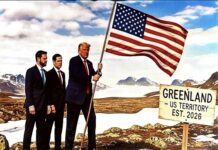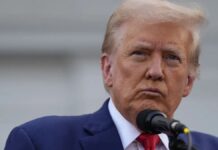
Lewis has been on the front lines of the fight for democracy for most of his life. Born on Feb. 21, 1940, to sharecroppers outside of Troy, Alabama, Lewis grew up attending segregated public schools. After watching the activism that sparked the Montgomery bus boycott and hearing the Rev. Martin Luther King Jr.’s words on the radio, Lewis was inspired to join the civil rights movement and fought for voting rights ever since.
As a college student attending Fisk University, Lewis helped organize peaceful sit-in protests at segregated lunch counters in Nashville, Tennessee. At age 21, he volunteered to be a Freedom Rider — one of the activists who risked their lives challenging segregation throughout the South by sitting in seats reserved for white people. (The protest was inspired by Rosa Parks, who refused to give up her bus seat for a white man in Montgomery, Alabama, in 1955.)
Lewis helped found the Student Nonviolent Coordinating Committee and became its chairman during the peak of the civil rights movement from 1963 to 1966. Lewis organized student activism in the movement through SNCC and was eventually considered one of the “Big Six” leaders of the civil rights movement, alongside King.
At 23, Lewis was one of the organizers of and the youngest keynote speaker at the March on Washington in August 1963. He helped launch voter registration drives during the Mississippi Freedom Summer in 1964, yet another example of his determination to bring voting rights to Black people.
Lewis often faced violent consequences for his civil rights leadership. He was repeatedly arrested and beaten by police and angry mobs for challenging Jim Crow segregation in the South and fighting for voting rights.
Alabama state troopers fractured Lewis’ skull in March 1965 while he led more than 600 peaceful demonstrators in a voting rights protest across the Edmund Pettus Bridge in Selma, Alabama, during what became known as Bloody Sunday. Media coverage of the cruelty during Bloody Sunday ― and the subsequent successful Selma march in which Lewis walked alongside King ― helped usher in the passage of the Voting Rights Act that year.
Lewis was elected to the Atlanta City Council in 1981 and to Congress in 1986. He served as House Democrats’ senior chief deputy whip and as a member of the House Ways and Means Committee.
Throughout his congressional career, Lewis fought to enact laws that furthered the civil rights and moral principles that he had championed since he was a young man. He helped campaign for Stacey Abrams, the Democrat who lost the 2018 gubernatorial election in Georgia and has since dedicated her career to fighting for voting rights amid allegations of Black voter suppression in the state.
“I gave a little blood on that bridge in Selma, 53 years ago,” Lewis told a crowd at a rally for Abrams just days before the election. “I’m not asking any of you to give any blood. I’m just asking you to go and vote like you never voted before. We have to vote.”
Lewis was also unfiltered in his criticism of President Donald Trump and refused to attend the 2018 State of the Union address after Trump characterized Haiti and African nations as “shitholes.” The congressman said in May 2019 that if King were alive today, Lewis would tell him that Trump is “a racist” who “doesn’t understand the meaning of your life and the significance of the civil rights movement.”
Lewis was a strong supporter of impeaching Trump on charges of abuse of power and obstruction of Congress, warning that the country he once considered a “beacon of hope” may be “descending into darkness.” Before voting to formally impeach the president in December 2019, Lewis delivered an emotional, fiery speech that alluded to his experiences in Washington that helped define the civil rights movement.
“When you see something that is not right, not just, not fair, you have a moral obligation to say something, do something,” the civil rights icon said. “Our children and their children will ask us: ‘What did you do? What did you say?’”
Lewis held hope for the future of America even through the pandemic and widespread anger over civil rights. As protests erupted nationwide over the police slaying of a Black Minnesota man, George Floyd, Lewis remarked on the sheer scope of the movement.
“I’ve come in contact with people who feel inspired. They’re moved. They’ve just never been along in a protest — they’ve never been in a march before — they decided to march with their children and their grandchildren and great-grandchildren and to walk with them,” he said in June.
“They’re helping to educate and inspire another generation of activists. It’s seeing an effect. There can be no turning back; there can be no giving up.











